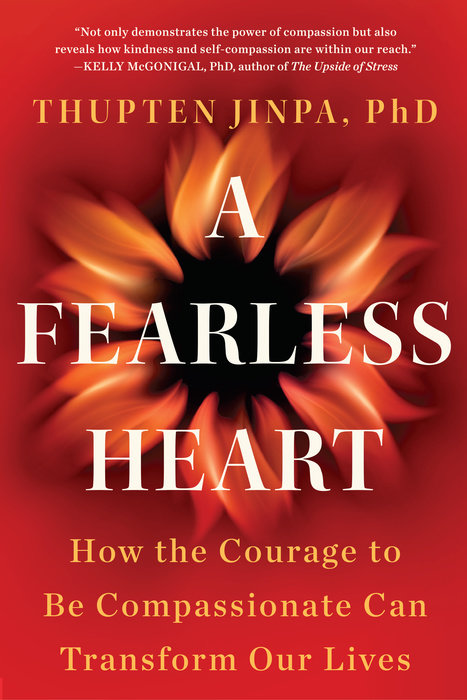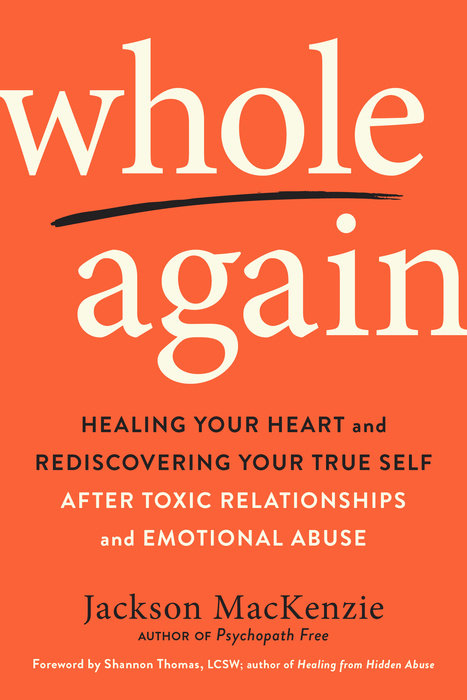Psychology of compassion is discussed (part 2)
YOU MIGHT ALSO LIKE
CLEAR ALL
BY TOPIC
BY TYPE
FILTER

TOPIC
- Talk Therapy (79)
- Empathy (60)
- Kindness (59)
- Anxiety (56)
- Cognitive Behavioral Therapy (54)
- Depression (52)
- Shame (51)
- Neuroscience (36)
- Self-Care (33)
- Honoring Emotion (31)
- Self-Acceptance (29)
- Stress Management (27)
- Well-Being (27)
- Mindfulness (26)
- Negative Self-Talk (26)
- Parenting (26)
- Self-Development (26)
- Self-Esteem (25)
- Trauma Healing (25)
- Self-Healing (23)
- Buddhism (22)
- Relationship Challenges (22)
- Building Character (21)
- Self-Limiting Beliefs (21)
- Cognitive Psychology (20)
- Communication Skills (20)
- Happiness (20)
- Psychology (20)
- Mindfulness Practices (19)
- Resilience (19)
- Self-Reflection Practices (19)
- Habit Formation (18)
- Vulnerability (18)
- Addiction (17)
- BIPOC Well-Being (17)
- Emotional Intelligence (EQ) (17)
- Meditation (17)
- Mind-Body Connection (17)
- Self-Love (17)
- Child’s Emotional Growth (16)
- Stress (16)
- Dysfunctional Childhood (15)
- Fear (15)
- Fellowship and Community (15)
- Self-Discovery (15)
- Awareness (14)
- Self-Worth (14)
- Activism/Service (13)
- Anger (13)
- Athlete Well-Being (13)
- Community Healing (13)
- Forgiveness (13)
- Positive Self-Talk (13)
- Search for Purpose (13)
- Brain Health (12)
- Family Dynamics (12)
- Guilt (12)
- Mental Health Challenges (12)
- Positive Thinking (12)
- PTSD (12)
- Black Well-Being (11)
- Compassion Meditation (11)
- Courage (11)
- Goal Setting (11)
- Habits of Mind (11)
- Inner Peace (11)
- Joy (11)
- Self-Realization (11)
- Children’s Well-Being (10)
- Chronic Anxiety (10)
- Leadership (10)
- Lovingkindness (10)
- Psychological Approaches (10)
- Transformation (10)
- Women’s Well-Being (10)
- Entrepreneurship (9)
- Generosity (9)
- Gratitude (9)
- Physical Health (9)
- Suffering (9)
- Suicide (9)
- Addiction Recovery (8)
- Anger Management (8)
- Cancer (8)
- Confidence (8)
- Criticism and Rejection (8)
- Finding Meaning (8)
- Life Challenges (8)
- Love (8)
- Neuroplasticity (8)
- Perception (8)
- Presence (8)
- Romantic Relationships (8)
- Self-Mastery (8)
- Social Responsibility (8)
- Work Relationships (8)
- Authenticity (7)
- Child’s Trauma (7)
- Grief (7)
- Interdependence (7)
- Longevity (7)
- Offering Support to Others (7)
- Panic Attacks (7)
- Self-Actualization (7)
- Self-Control (7)
- Setting Limits and Boundaries (7)
- Trauma (7)
- Acceptance (6)
- Belonging (6)
- Breathwork (6)
- Child’s Anxiety (6)
- Eating Disorders (6)
- Human Potential (6)
- Imagination and Creativity (6)
- Inner Life (6)
- Intention (6)
- Living as an Empath (6)
- Moral Philosophy (6)
- Motivation (6)
- Spiritual Growth (6)
- Spiritual Practices (6)
- Tibetan Buddhism (6)
- Values (6)
- Adaptability (5)
- ADD/ADHD (5)
- Chronic Pain (5)
- Clinical Depression (5)
- Codependency (5)
- Cognition (5)
- Consciousness (5)
- Empowerment (5)
- Endurance (5)
- Enlightenment (5)
- Guided Meditation (5)
- Highly Sensitive People (5)
- Inner Child (5)
- Letting Go (5)
- Loneliness (5)
- Mindfulness Meditation (5)
- Peak Performance (5)
- Racial Healing (5)
- Social Anxiety (5)
- Social Justice (5)
- Speaking Your Truth (5)
- Trust (5)
- Abandonment (4)
- Aging (4)
- Asking for Help (4)
- Body Image (4)
- Caregiver Well-Being (4)
- Child’s ADD/ADHD (4)
- Child’s Challenging Behavior (4)
- Christianity (4)
- Connection with Nature (4)
- Curiosity (4)
- Female Empowerment (4)
- Friendship (4)
- Healing Approaches (4)
- Hope (4)
- Integrity (4)
- Internal Family Systems (4)
- Memoir (4)
- Neurodiversity (4)
- Performance Anxiety (4)
- Problem Solving (4)
- Psychoanalysis (4)
- Racial Justice (4)
- Racism (4)
- Self-Pressure (4)
- Shadow (4)
- Spiritual Awakening (4)
- Spiritual Life (4)
- Toxic Relationships (4)
- Veteran Well-Being (4)
- Visualization (4)
- Work Challenges (4)
- Yoga (4)
- Affirmations (3)
- Alcohol Addiction (3)
- Biofeedback (3)
- Challenges with Teens (3)
- Connection (3)
- Creative Well-Being (3)
- Cross-Cultural Dynamics (3)
- Death and Dying (3)
- Decision Making (3)
- Dharma (3)
- Diet and Nutrition (3)
- Epigenetics (3)
- Facing Own Death (3)
- Healthy Eating (3)
- Humility (3)
- Identity (3)
- Inner Strengths (3)
- Integrative Medicine (3)
- Journaling (3)
- Karma (3)
- LGBTQIA Well-Being (3)
- Lovingkindness Meditation (3)
- Memory (3)
- Military to Civilian Re-entry (3)
- Narcissism (3)
- Neuropsychology (3)
- OCD (3)
- Oneness (3)
- Patience (3)
- Positive Psychology (3)
- Post-Traumatic Growth (3)
- Science and Spirituality (3)
- Self-Reckoning (3)
- Sexuality (3)
- Situational Depression (3)
- Social Psychology (3)
- Spiritual Development (3)
- Trauma-Informed Therapy (3)
- Willpower (3)
- Young Adult Well-Being (3)
- Attachment Theory (2)
- Autoimmune Disease (2)
- Body Positivity (2)
- Building Culture (2)
- Bullying (2)
- Child’s Autism (2)
- Christian Mysticism (2)
- Conflict Resolution (2)
- Divorce and Breakup (2)
- Doubt (2)
- Ego (2)
- Energy Healing (2)
- Environmental Justice (2)
- Exercise (2)
- Failure (2)
- Focus (2)
- Forest Bathing (2)
- Freedom (2)
- Global Challenges (2)
- Growth Mindset (2)
- Holism (2)
- Hypnosis (2)
- Intergenerational Trauma (2)
- Intimacy (2)
- Non-Duality (2)
- Optimism (2)
- Othering (2)
- Performance Pressure (2)
- Personality Disorders (2)
- Psychology and Spirituality (2)
- Race and Gender (2)
- Racial Discrimination (2)
- Racial Identity (2)
- Regret (2)
- Self-Expression (2)
- Self-Reliance (2)
- Sex (2)
- Sexual Assault or Abuse (2)
- Sleep (2)
- Sleep Disorders (2)
- Spiritual Direction (2)
- Spiritual Healing (2)
- Storytelling (2)
- AAPI Well-Being (1)
- Academic Struggles (1)
- Accepting Love (1)
- Access to Education (1)
- Acupressure (1)
- Art Therapy (1)
- Autism (1)
- Betrayal (1)
- Boundary Confusion (1)
- Buddha Nature (1)
- Burnout (1)
- Cannabis/CBD (1)
- Chakras (1)
- Child Depression (1)
- Child’s Social Media Addiction (1)
- Chronic Health Conditions (1)
- Clairvoyance and Precognition (1)
- Collective Trauma (1)
- Compassion Fatigue (1)
- Competition (1)
- Conscience (1)
- Dark Night of the Soul (1)
- Despair (1)
- Digital Life (1)
- Disconnection (1)
- Domestic Abuse (1)
- Dream Analysis (1)
- Ecospirituality (1)
- Embodiment (1)
- Enneagram (1)
- Faith (1)
- Faith and Identity (1)
- Faith Healing (1)
- Family Therapy (1)
- Feminism (1)
- Gender Challenges (1)
- Genetics (1)
- God (1)
- Goddess (1)
- Handling a Loved One’s Illness (1)
- Heartmath (1)
- Higher Calling (1)
- Humanitarian Aid/Relief Work (1)
- Illness and Injury (1)
- Inspiration (1)
- Islam (1)
- Islamophobia (1)
- Jealousy/Envy (1)
- Jewish Renewal (1)
- Kundalini Yoga (1)
- Latinx Well-Being (1)
- Learning Styles (1)
- LGBTQIA Children (1)
- LGBTQIA Relationships (1)
- Lifestyle Medicine (1)
- Living with Illness (1)
- Manifestation (1)
- Marriage (1)
- Masculine/Feminine Dynamics (1)
- Mentoring (1)
- Midlife Crisis (1)
- Motherhood (1)
- Native American Beliefs (1)
- New Relationships (1)
- Nightmares (1)
- Nutritional Medicine (1)
- Obsessions/Compulsions (1)
- Philosophical Approaches (1)
- Poetry (1)
- Poverty/Economic Inequality (1)
- Prayer (1)
- Pregnancy and Childbirth (1)
- Relationship with Time (1)
- Rest (1)
- Sacred Feminine (1)
- Sexual Health (1)
- Social Media Addiction (1)
- Social Presence (1)
- Somatic Experiencing (1)
- Somatic Practices (1)
- Soul Mission (1)
- Spiritual Quest (1)
- Spirituality and Health (1)
- Sufism (1)
- The Divine (1)
- The Unconscious (1)
- Transpersonal Psychology (1)
- Traumatic Grief (1)
- Vitamin Supplementation (1)
- Whiteness (1)
- Wholeness (1)
- Women’s Rights (1)
- Work-Life Balance (1)
- Yoga Therapy (1)
- Youth Activism (1)
- Zen Buddhism (1)
FILTER

TEACHER
- Brené Brown (9)
- Paul Gilbert (9)
- Richard Davidson (7)
- Terri Cole (7)
- Christopher Germer (5)
- Dacher Keltner (5)
- Daniel Goleman (5)
- Harriet Lerner (5)
- James Doty (5)
- Lisa Feldman Barrett (5)
- Martin Luther King Jr. (5)
- Pema Chödrön (5)
- Sharon Salzberg (5)
- Thubten Chodron (5)
- Bret Lyon (4)
- Gaylon Ferguson (4)
- Karla McLaren (4)
- Daniel J. Siegel (3)
- Gabor Maté (3)
- Joan Halifax (3)
- Lodro Rinzler (3)
- Marc Ian Barasch (3)
- Richard Schwartz (3)
- Sheila Rubin (3)
- Tara Brach (3)
- Andrew Solomon (2)
- Chögyam Trungpa (2)
- Daniel Amen (2)
- don Jose Ruiz (2)
- John Sarno (2)
- Jon Kabat-Zinn (2)
- Matthieu Ricard (2)
- Peter A. Levine (2)
- Rick Hanson (2)
- Russell Brand (2)
- Spring Washam (2)
- Stephen Levine (2)
- Zindel Segal (2)
- Abraham Maslow (1)
- Alain de Botton (1)
- Alanis Morissette (1)
- Amishi Jha (1)
- Andrew Weil (1)
- Andy Puddicombe (1)
- Angela Duckworth (1)
- Anne Lamott (1)
- Bessel van der Kolk (1)
- Biet Simkin (1)
- BJ Miller (1)
- Blaise Aguirre (1)
- Camille Helminski (1)
- Chip Conley (1)
- Colleen Saidman Yee (1)
- Connie Zweig (1)
- Cyndi Dale (1)
- Cynthia Bourgeault (1)
- Debbie Ford (1)
- Deepak Chopra (1)
- Dorothy Day (1)
- Eckhart Tolle (1)
- Edward Hallowell (1)
- Elaine Aron (1)
- Elizabeth Lesser (1)
- Ellen Bass (1)
- Emiliana Simon-Thomas (1)
- Eric Maisel (1)
- Esther Perel (1)
- Ethan Nichtern (1)
- Gary Zukav (1)
- Gloria Steinem (1)
- Gordon Neufeld (1)
- Howard Gardner (1)
- Hyla Cass (1)
- Iskra Lawrence (1)
- Iyanla Vanzant (1)
- J. Krishnamurti (1)
- James Hillman (1)
- James Martin (1)
- Jan Willis (1)
- Jana Long (1)
- Jane Hirshfield (1)
- Jay Shetty (1)
- Jesus (1)
- Joseph M. Marshall III (1)
- Judith Blackstone (1)
- Judith Orloff (1)
- Kamilah Majied (1)
- Karen Armstrong (1)
- Krista Tippett (1)
- Lama Surya Das (1)
- Lama Tsultrim Allione (1)
- Leah Guy (1)
- Linda Hogan (1)
- Lindo Bacon (1)
- Lise Van Susteren (1)
- Lori Gottlieb (1)
- Lucille Clifton (1)
- Lynne McTaggart (1)
- Martin Seligman (1)
- Matthew Fox (1)
- Maya Angelou (1)
- Megan Devine (1)
- Michael Pollan (1)
- Michele Borba (1)
- Mihály Csíkszentmihályi (1)
- Monnica Williams (1)
- Naomi Shihab Nye (1)
- Nedra Glover Tawwab (1)
- Nicole LePera (1)
- Norman Fischer (1)
- Ondrea Levine (1)
- Oprah Winfrey (1)
- Paramahansa Yogananda (1)
- Piero Ferrucci (1)
- Poppy Jamie (1)
- Ralph De La Rosa (1)
- Rebecca Solnit (1)
- Robert Firestone (1)
- Robert Sapolsky (1)
- Rodney Yee (1)
- Roxanne Dault (1)
- Ruby Wax (1)
- Rudolph Ballentine (1)
- Sharon Brous (1)
- Shauna Shapiro (1)
- Sigmund Freud (1)
- Simon Sinek (1)
- Stephanie Y. Evans (1)
- Steven Johnson (1)
- Sylvia Boorstein (1)
- Tony Gaskins Jr. (1)
- V (1)
- Valarie Kaur (1)
- Viktor E. Frankl (1)
- William Bloom (1)
- Yongey Mingyur Rinpoche (1)










